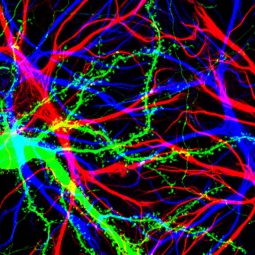

Many people with multiple sclerosis (MS) use complementary health approaches to help reduce relapses or relieve symptoms, such as pain, muscle spasticity, fatigue, cognition and depression. Some mind and body practices, such as yoga, may help ease some symptoms of MS, but there is currently no definitive evidence to suggest that any dietary supplement is effective to reduce relapses or symptoms of MS.
The American Academy of Neurology issued evidence-based guidelines in 2014 on complementary and alternative medicine use for MS and concluded that evidence was available to develop practice recommendations for use of cannabinoids, ginkgo biloba, low-fat diet with omega-3 supplementation, magnet therapy, reflexology, and bee venom therapy. This issue of the digest provides the state of the evidence for these and other commonly used complementary health approaches for MS.
What the Science Says:
Multiple Sclerosis and Complementary Health Approaches
Learn what current research has to say about:


































No hay comentarios:
Publicar un comentario